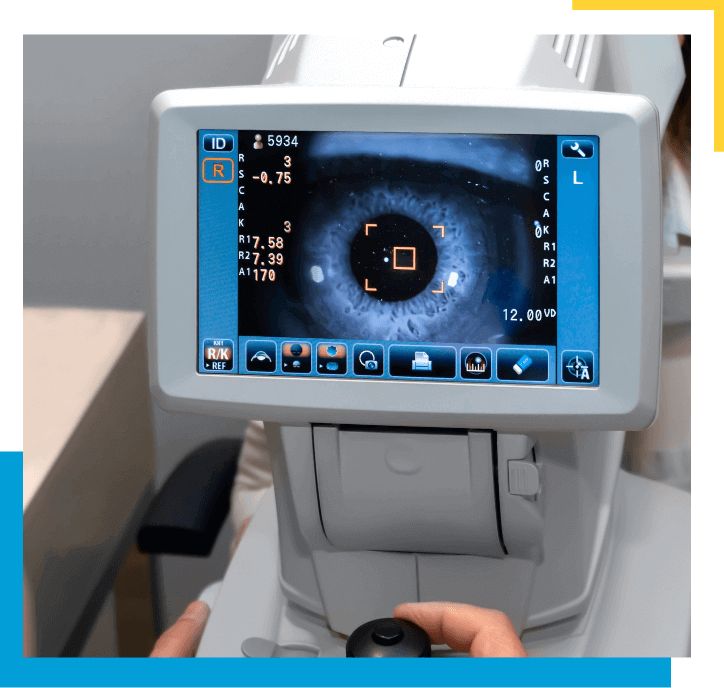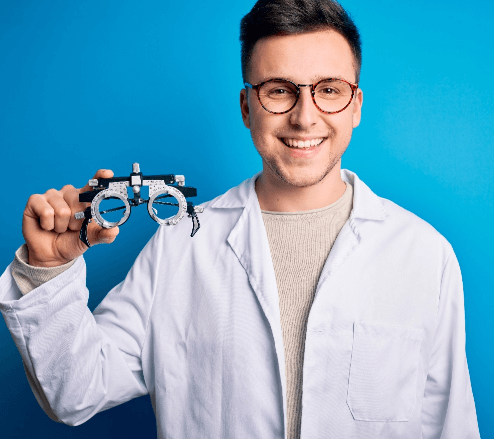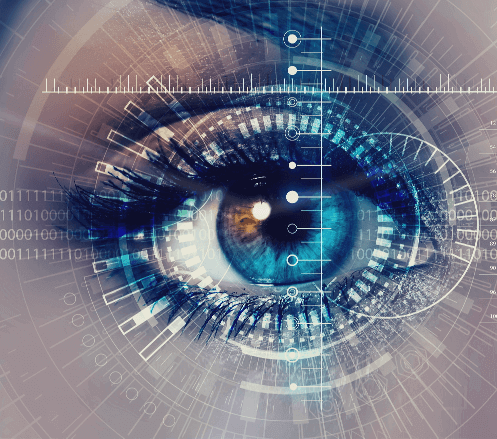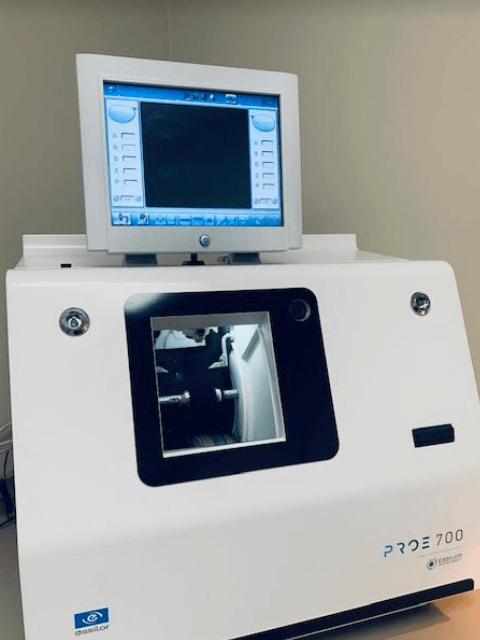The retina, which is in the back of your eye, is a place where your body’s blood vessels can be seen directly. It is, in fact, the only such place in your entire body. This means that by observing the blood vessels, you can spot various conditions and diseases in your body, not only the eyes. The various conditions can include life-threatening ones like heart disease, stroke, hypertension or even diabetes.
At Red Deer’s Eyewear Experts, our Optomap retinal imaging camera enables us to remotely have your images reviewed by doctors of Ophthalmology to discover, diagnose, document and treat ocular pathology that may go undetected using traditional exam techniques and equipment.

Since 2007, we’ve been honoured to serve the community of Red Deer and thousands of satisfied customers. Your eyes and vision are one of the most important aspects of your overall health, and we don’t take this lightly! Our Optomap retinal imaging services are advanced and our skilled team is here to help.

During your eye exam, our professional opticians create a relaxed and friendly environment and are happy to answer your questions. We take the time to get to know your health history and any concerns you may have about your vision.
Routine eye exams are an important part of your overall health as we can detect certain health conditions early. Our goal is to find you the right eyecare solution so you can see clearly and live comfortably.

We use the latest in eye testing technology that increases the efficiency and accuracy of our eye exams., The Vision-R 700 produces high-resolution images that can detect even the smallest changes in the eye, providing greater accuracy in diagnosing eye conditions.
Unlike traditional eye exams, the Vision-R 700 does not require dilation of the pupil, which means it is a non-invasive procedure that can be more comfortable for patients.

Our onsite 1HR lab can be incredibly convenient for patients who may have busy schedules or limited time for appointments. One of the primary benefits of a 1HR lab is that it is designed to provide you with a prescription in as little as one hour.
Because our 1HR lab is designed to be efficient, patients can find the eyecare solution they need as soon as possible, allowing them to get back to their daily routines more quickly.
This procedure is fast and painless. It never even touches your eyes and is suitable for your entire family. Optomap retinal imaging helps in the early detection of conditions that can lead to vision impairment or blindness. It can also help you in the early protection from life-threatening diseases like cancer, stroke and heart attack.
Overall, Optomap retinal imaging offers a number of benefits, including early detection of eye diseases, a comprehensive view of the retina, and a quick and non-invasive exam. It is an important tool for maintaining eye health and preventing vision loss.
Optomap retinal imaging is a quick and painless procedure that can be done in a matter of minutes. It does not require any dilation of the pupils, which means you can resume normal activities immediately after the exam.
Optomap captures an ultra-widefield image of the retina, providing a detailed view of the entire retina. This can help detect any abnormalities or signs of disease that may not be visible with a traditional retinal exam.
Optomap can help detect potential eye diseases, such as age-related macular degeneration, diabetic retinopathy, and glaucoma. Early detection can lead to earlier intervention and treatment, which can help prevent further damage to the eye and preserve vision.
Optomap retinal imaging is a non-invasive diagnostic technology used to capture detailed images of the retina, which is the light-sensitive tissue at the back of the eye. This technology is often employed by optometrists and ophthalmologists as part of a comprehensive eye exam to assess the health of the retina and to detect various eye conditions and diseases, including diabetes, glaucoma, macular degeneration, and retinal detachment.
A retinal exam is important for several reasons, as it plays a crucial role in assessing and maintaining your overall eye health. Some of the key reasons a retinal exam is essential include monitoring eye health and risk factors, early detection of eye conditions, preserving vision, and providing overall health indicators.
Yes. In fact, many vision problems begin in early childhood, so it’s important for children to receive routine eye care.
No. The procedure is quick and comfortable for patients. It does not require the traditional method of using eye drops to dilate the pupils, making it more convenient.
We recommend including this procedure in every comprehensive eye exam. One of the most significant benefits of Optomap retinal imaging is to detect eye conditions and diseases in their earliest stages, often before you experience any noticeable symptoms. This early detection can lead to more effective treatment and a higher likelihood of preserving your vision.